Kazimieras Simonavicius University’s Rector, Prof. Dr. Jolanta Bieliauskaitė participated in the annual conference of the Central and Eastern European Network of Jurisprudence (CEENJ), held at the Faculty of Law, University of Belgrade, Serbia, on 11-12 October. She delivered a presentation titled “Jurisprudence and the Changing Landscape of Legal Professions,” exploring the evolving nature of legal careers in response to rapid technological and societal changes.
CEENJ is a collaborative network that brings together leading scholars from Central and Eastern Europe and beyond, fostering dialogue and research on key issues in jurisprudence. The network plays a crucial role in advancing legal thought, promoting regional cooperation, and enhancing the academic landscape in the field of law.
As a member of CEENJ’s International Advisory Board, Prof. Bieliauskaitė is actively involved in shaping the future direction of the network. She is also responsible for organizing the next CEENJ conference, which will be held in Vilnius, Lithuania, in 2025.
Alexander Tsigkas has been a visiting professor at Kazimieras Simonavicius University (KSU) for about four years, teaching in the Business Management and Organisational Innovation and Management programmes. He is also a postdoctoral researcher at the University of Ioannina in Greece, where his research focuses on the intersection of architecture, arts, and engineering from both theoretical and practical perspectives. Today, we asked Professor Tsigkas to share his experience of teaching at KSU.
What is your area of teaching?
My entire career has been connected to the manufacturing industry, and I have been teaching in this field for over 20 years. I start my courses with topics such as production management, supply chain management, and innovation management—quite broad areas.
We’re seeing a growing demand for skills that cross multiple disciplines. Specializing is great, but it’s equally important to think about how different fields can be synthesized. Years ago, I questioned how people could collaborate effectively without shared ground. While people excel in their specializations (vertical thinking), they often struggle with broader, interdisciplinary approaches (horizontal thinking). This is why broad knowledge and wide perspectives are so valuable today.
What motivates you to collaborate with KSU?
About ten years ago, I met a colleague at a conference in Switzerland, and we decided to keep in touch. Through her, I later connected with Deimantė Žilinskienė, the Head of Business Innovation & Communication School at KSU. I’m interested in long-term partnerships, not just one-off projects.
Why do you think KSU is a good place for students?
KSU has a strong international presence, which is very important to me. It’s essential for students to be exposed to diverse cultures and ways of thinking. Many students have told me that they chose Europe and KSU specifically because they wanted to experience different cultures. Lithuania is also an affordable destination for international students. While not all countries promote themselves as welcoming to international students, KSU does an excellent job attracting them. Europe, even without extensive advertising, remains a leader in many fields, and we still hold cultural and technological leadership, though I wonder how long that will last.
What are the main differences between the educational systems in Greece and Lithuania?
In Greece, private universities are not allowed by the Constitution. We do have private educational institutions like schools and high schools, but no private universities. The concern is that education might become commercialized, which could affect its quality. However, this issue can arise in public universities as well—not all are of high quality. Universities in Greece are free, except for some master’s programs, which are still quite affordable.
In which countries have you taught?
I’ve taught extensively in Germany for about 10 years and have teaching experience in Greece, the US, the UK, Italy, and other countries. I entered academia relatively late, at the age of 50, after a 25-year career in industry. I also studied architecture, though I didn’t work much as an architect in Greece. However, architecture is closely related to other fields, like engineering.
Do you have a memorable moment from your teaching experience at KSU?
I’ve worked in international environments throughout my career. In one of my classes at KSU, there were students from both India and Pakistan. We were discussing how to connect better with one another, and I asked them what the main issue was between their two countries. A student from Pakistan responded, “Maybe we shouldn’t talk about that. Let’s just leave it.” He likely felt that explaining the issue might lead to conflict, so he avoided it. Instead, he emphasized what unites both nations, noting that they share the same language. Despite the tensions between their countries, the students felt comfortable in the same classroom.
What advice would you give to students?
Stay hungry, stay foolish!
Three words about Lithuania?
Calmness, Architecture, Technology.
From September 29th to October 2nd, 2024, the ASPro – Aviation Safety Professional Diploma project partners gathered in Amman, Jordan, for insightful meetings and field visits to Amman Arab University (AAU), Mid-East Aviation Academy (MEAA), Balqa Applied University (BAU), and Jordan University of Science & Technology (JUST).
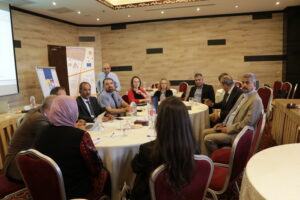 As the partner in this project, Kazimieras Simonavicius University (KSU) was represented by Rector Prof. Dr. Jolanta Bieliauskaitė and Erasmus Coordinator Kristina Šlekienė, who contributed to fostering collaboration with international institutions.
As the partner in this project, Kazimieras Simonavicius University (KSU) was represented by Rector Prof. Dr. Jolanta Bieliauskaitė and Erasmus Coordinator Kristina Šlekienė, who contributed to fostering collaboration with international institutions.
“Collaboration between institutions is crucial for fostering innovation in aviation education and training. Through shared expertise and resources, we can ensure a high level of safety and professional development in the industry,” said Prof. Dr. Jolanta Bieliauskaitė.
The ASPro project aims to develop an accredited Safety Management Systems (SMS) professional diploma, a comprehensive certification designed to streamline the training process for aviation safety experts. This diploma offers a cost-effective solution, helping aviation companies invest in the professional development of their teams, even in challenging economic times. 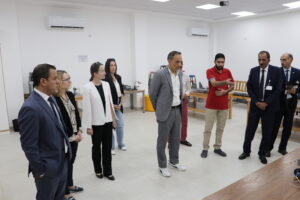
The project partners also include University of the Aegean (UAEGEA) (coordinator) and Creative Thinking Development (CRE.THI.DEV) from Greece, as well as Eskisehir Technical University (ESTU) from Turkey.
Stay tuned for more updates as we continue to elevate aviation safety education across the region!
Last week, Kazimieras Simonavicius University’s Head of the Business Innovation & Communication School, Deimantė Žilinskienė, attended the Riga Aviation Forum 2024.
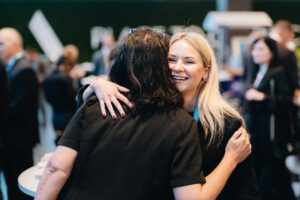 D. Žilinskienė shared her valuable insights during the panel discussion “Employment and Education” alongside renowned aviation and academic experts: Ivan Berazhny, Iluta Savicka, Ilmars Blumbergs, and Kristaps Lapsa.
D. Žilinskienė shared her valuable insights during the panel discussion “Employment and Education” alongside renowned aviation and academic experts: Ivan Berazhny, Iluta Savicka, Ilmars Blumbergs, and Kristaps Lapsa.
“There is a significant demand for aviation specialists across all areas of aviation, yet a considerable shortage. I believe we must promote this industry more, and that requires joint efforts from both academia and industry partners. I genuinely believe that aviation education should be focused and adaptable to different types of learners, as there are many opportunities to contribute and build careers in this field. In addition to excellence, innovation, I think that integrity, diversity, and inclusivity at their best should become core values in our teaching and learning” said D. Žilinskienė.
The Riga Aviation Forum brings together European and Baltic aviation stakeholders, leaders, and experts to discuss the future of aviation. The forum highlights strategic developments and innovations aimed at creating a more sustainable and climate-neutral aviation industry.
More information about the Riga Aviation Forum read here: Home – Riga Aviation Forum (raf.aero)
From 25-27 September, Kazimieras Simonavicius University (KSU) Vice-Rector, Dr. Loreta Tauginienė, took part in the 32nd International Conference “Entrepreneurship in the Digital Age,” organised by the International Association for Management Development in Dynamic Societies (CEEMAN) in Innsbruck.
During the conference, Vice-Rector Dr. Tauginienė highlighted the threats posed by companies offering contract cheating services, describing them as predatory digital entrepreneurs. She emphasised that only a few countries worldwide, including Lithuania, the UK, and Australia, consider the activities of these companies to be not only unethical but also illegal.
Additionally, she pointed out that the rapid advancement of generative AI technologies has not slowed the growth of these companies.
Founded in 1993, CEEMAN aims to accelerate management quality development in Central and Eastern Europe and now functions as a global network promoting management excellence and educational development. With over 200 members from 50 countries across Europe, North America, Latin America, Africa, and Asia, CEEMAN is an influential platform for advancing management education worldwide.
Vice-Rector Dr. Loreta Tauginienė joined the CEEMAN network in 2024.
Kazimieras Simonavicius University (KSU) was represented at the 2024 EAIE (European Association for International Education) Exhibition in Toulouse from September 17-20 by Ingrida Kutkienė, Head of International Relations. Kutkienė participated in the workshop titled “Future-proofing Your Funnel: Unlocking Gen Alpha Insights for Student Recruitment Excellence,” led by Alejandra Otero (getNEOus, USA) and Menno Kramer (Utrecht University).
The workshop focused on equipping educational institutions to engage Generation Alpha, the cohort expected to start their educational journeys in the coming two years. Alejandra and Menno guided participants through the latest recruitment strategies tailored for Gen Alpha, offering an immersive experience filled with practical activities and case studies. These tools aim to help institutions future-proof their recruitment efforts and meet the expectations of this new generation.
Ingrida Kutkienė shared, “This workshop provided me with valuable insights into adapting our recruitment strategies for the next generation. The emphasis on innovation and engaging prospective students as co-creators aligns perfectly with KSU’s forward-thinking approach.” Kutkienė further noted that EAIE serves as an exceptional platform for networking, fostering inspiring projects, and strengthening connections with both new partners and long-standing colleagues.
More about the event: EAIE Toulouse 2024 | International Education conference
From September 9-13, 2024, representatives from Kazimieras Simonavicius University (KSU) participated in the Luhmann Conference held in Dubrovnik. This year’s conference, themed “Guiding Distinctions – Observed with Social Systems Theory,” brought together leading sociologists and researchers from around the world, spanning countries such as Argentina, Canada, South Africa, and Japan.
The conference featured diverse discussions ranging from leadership and management to art and literature, providing an enriching platform for scholarly exchange. A notable highlight of this year’s event was the presentation of the Best Paper Award to Prof. Diane Laflamme of Université du Québec à Montréal for her innovative research, “Is Ethics a Utopia? Yes, when Moral Distinctions Impair the Ethical Aim.” Prof. Laflamme’s paper offers a unique analysis of the convergence between Luhmann’s digital theorizing and Ricœur’s analogue philosophy, shedding new light on ethical reasoning in a digital age.
Organized annually by the Next Society Institute (NSI), founded in 2020 as part of KSU, the Luhmann Conference continues to foster global collaboration and exploration of social systems theory.
For more information, visit the official conference website: Luhmann Conference
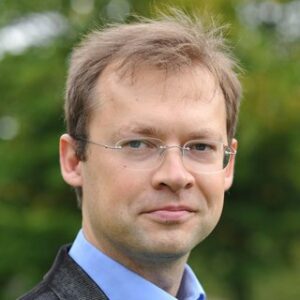 We are proud to announce that Prof. Dr. Vladislav Valentinov, a distinguished researcher affiliated with Kazimieras Simonavicius University‘s Next Society Institute, has been honored with the Outstanding Paper Award in the 2024 Emerald Literati Awards. This prestigious recognition was awarded for his article “Sustainability and Stakeholder Theory: A Processual Perspective” published in the journal Kybernetes.
We are proud to announce that Prof. Dr. Vladislav Valentinov, a distinguished researcher affiliated with Kazimieras Simonavicius University‘s Next Society Institute, has been honored with the Outstanding Paper Award in the 2024 Emerald Literati Awards. This prestigious recognition was awarded for his article “Sustainability and Stakeholder Theory: A Processual Perspective” published in the journal Kybernetes.
The article addresses a critical issue in the realm of corporate sustainability—the epistemic challenge of sustainability within corporate settings. Prof. Dr. Valentinov emphasizes the complexities managers face in both identifying and addressing sustainability problems. He suggests that effective corporate stakeholder management policies could provide a viable solution to these challenges.
The publication contributes significantly to the advancement of stakeholder theory in two key ways:
New Justification for Stakeholder Theory: It underscores the growing importance of cooperative adaptation, providing a fresh perspective on the value of stakeholder theory.
Dual Benefit in Corporate Settings: The paper demonstrates that effective stakeholder management is crucial for maximizing both economic and sustainability performance, thus offering a dual advantage for corporations.
These insights highlight the vital role of cooperative stakeholder management in overcoming corporate sustainability challenges.
Prof. Dr. Vladislav Valentinov‘s recognition in the 2024 Emerald Literati Awards is a testimony to the university‘s commitment to high-impact research. According to Clarivate Analytics (Web of Science) indicators-based evaluation by the Research Council of Lithuania, KSU’s research publications are consistently ranked within the top 10 percent of the world’s most highly cited scientific articles.
Kazimieras Simonavicius University invites its students, lecturers, and staff to join the National Mobility Challenge! The National Mobility Challenge will begin on 16th September and will last for two months. The vision for the 2024 National Mobility Challenge is Sustainable Mobility for All.
“I invite the KSU academic community to unite their steps and, in doing so, support the vision of the National Mobility Challenge – sustainable and green mobility for everyone. Let’s move while drawing attention to the obstacles that may be insurmountable for people with individual needs,” said KSU Rector Prof. Dr Jolanta Bieliauskaitė.
We invite the KSU academic community to join the National Mobility Challenge on 16th September!
Kazimieras Simonavičius University invites its students, lecturers, and staff to join the National Mobility Challenge! The National Mobility Challenge will begin on 16th September and will last for two months. The vision for the 2024 National Mobility Challenge is Sustainable Mobility for All.
This project, now in its fourth year, is becoming increasingly popular. Walking is a way to strengthen both physical and emotional health whilst protecting the environment. According to the organisers of the National Mobility Challenge, more than 23,000 participants joined in 2021, and in 2023, that number reached 160,000 participants.
You can find detailed instructions on how to join at: https://www.walk15.app/lt/issukiai/nacionalinis-judumo-issukis-2024/
Let’s join the challenge and support the idea – Sustainable Mobility for All!
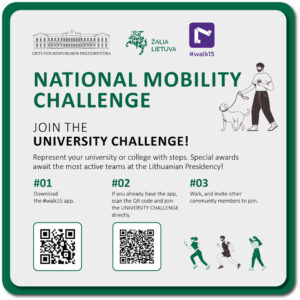
Dear Academic Community of Kazimieras Simonavicius University,
Congratulations on the beginning of the new academic year!
Your dedication, passion and consistent work are the driving force behind the success of our University. As we continue our journey together, let us move forward with determination, innovation and a shared vision for the University.
May the new academic year be filled with the joy of growth, achievement and progress!
KSU Rector
Prof. Dr. Jolanta Bieliauskaitė
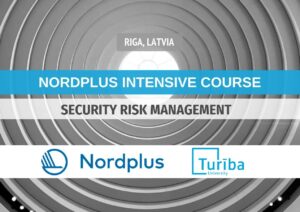 Security is an important topic both globally and for the Baltic and Scandinavian countries that are members of the Nordplus program. We are currently facing new challenges related to the impact of war, migration, conflicts rooted in cultural and religious differences, cyberattacks, and other threats to our security. Therefore, it is becoming increasingly important for educational institutions to prepare capable and knowledgeable security specialists who can tackle these threats and challenges. Moreover, security is an international discipline, and only through cooperation and uniting forces can Europe confront these new security threats.
Security is an important topic both globally and for the Baltic and Scandinavian countries that are members of the Nordplus program. We are currently facing new challenges related to the impact of war, migration, conflicts rooted in cultural and religious differences, cyberattacks, and other threats to our security. Therefore, it is becoming increasingly important for educational institutions to prepare capable and knowledgeable security specialists who can tackle these threats and challenges. Moreover, security is an international discipline, and only through cooperation and uniting forces can Europe confront these new security threats.
For this reason, five partner universities – Turiba University (Latvia), Kazimieras Simonavicius University (Lithuania), Tallinn University of Technology (Estonia), LAUREA University of Applied Sciences (Finland), and Nord University (Norway) – have been cooperating and are jointly implementing an intensive course on security risk management. In August 2024, 28 students from these five universities participated in the intensive course, which took place at Turiba University in Riga. This course provided an opportunity for students to receive intensive training, offering in-depth knowledge in the field of security.
The course provided insights into topics such as security theory, individual and organizational security, globalization, crisis management, energy security, cybersecurity, conflict resolution, cooperation, and leadership.
As part of the intensive course, students participated in lectures, practical classes, discussions with professionals and experts, and study visits. Lecturers from five countries participated in the course. This course offered an excellent opportunity to study and work in an international environment with students from Latvia, Lithuania, Estonia, Norway, and Finland.
“Currently, the world, economy, and business are becoming increasingly global and international. Almost every profession requires the ability and skill to work in international teams, build collaborations, understand other cultures, and establish connections with colleagues and clients from around the world. As a result, gaining international experience has become an integral part of studies. This is precisely why intensive courses, or summer schools, provide an excellent international experience for students who, for various reasons, do not wish or are unable to participate in exchange programs abroad for a semester or a year. Intensive courses are usually an exciting and unforgettable experience, during which students not only gain new knowledge but also form friendships and collaborations,” emphasizes one of the course creators, Kristīne Neimane from Turiba University.
Students really enjoyed the time in Riga, let to know Latvia and its culture and also developed professional skills and knowledge. “The lectures were interesting, and the lecturers were excellent. I gained knowledge on several subjects directly related to my field of work. Even during the course, I began applying what I learned to my work projects. I highly recommend this course; it is relevant to a wide range of industries and professionals” says one of the course participants from Norway.
The course took place in Riga from August 13th to August 24th, 2024. You can find the course program, presentations, and videos HERE.
The course was organized with financial support from the NORDPLUS program. The project involved five universities: Turiba University (Latvia), Kazimieras Simonavicius University (Lithuania), Tallinn University of Technology (Estonia), LAUREA University of Applied Sciences (Finland), and Nord University (Norway). Project number: NPHE-2024/10358.
The Communication study programmes at Kazimieras Simonavičius University (KSU), including the Bachelor’s programme in Fashion Industry and the Master’s programme in Integrated Communication, have been accredited for 7 years. These programmes were evaluated by the Study Quality Assessment Centre, which conducted an external expert review .According to the report from international experts, “KSU takes higher education very seriously, responsibly managing the study processes and ensuring a meaningful educational experience for both students and staff.”

Joana Burn Photography
“This is a significant acknowledgement of the hard work of our team, demonstrating KSU’s expertise in the field of Communication studies. We are delighted to offer students unique programmes with a high standard of education. The seven-year accreditation is the maximum accreditation period, indicating that our study programmes are mature and competitive,” said KSU Rector, Prof. Dr. Jolanta Bieliauskaitė. She also highlighted that international evaluators noted the uniqueness and distinctiveness of the Fashion Industry programme in the European context, emphasising its synergy with other programmes offered by European universities. “We compete with universities in Italy, so students interested in fashion can confidently choose to study at KSU—our programme is robust and shares similarities with fashion industry programmes taught across Europe,” added the Rector. She also mentioned that graduates of the Fashion Industry programme are already creating their success stories in the growing fashion industry. The Rector emphasised that both evaluated study programmes are advanced and meet the needs of the modern job market. “The Integrated Communication Master’s programme is aimed at professionals seeking to use the most advanced communication tools and technological solutions,” said Prof. Dr. Jolanta Bieliauskaitė.
The experts highlighted the high level of qualifications and competencies of the lectors exceeding the standards set by legal regulations. “We aim to have the best professionals in their fields teaching at KSU—we invite the most renowned experts from both Lithuania and abroad,” said the Rector.
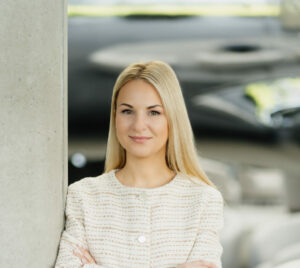
Joana Burn Photography
Deimantė Žilinskienė, Director of the KSU Business Innovation and Communication School, stated that the 7-year accreditation of the Communication study programmes proofs that the university consistently strives to offer students new, distinctive, and competitive programmes that are aligned with future job market needs. “Students from all over the world choose our university due to the specificity and quality of the programmes we offer. KSU is already well-known in Europe for its Aviation Management programme. We aim to establish ourselves in the global education market as a university offering exceptional Fashion Industry and Integrated Communication programmes. The excellent evaluation by international experts confirms the outstanding quality of our study programmes,” said Deimantė Žilinskienė. She also noted that international experts positively assessed KSU’s efforts to provide students with opportunities to personalise their studies and gain valuable practical experience, while also emphasising the exceptional, individual approach to students within the University community.
The university’s study programmes are periodically evaluated in accordance with the Study Quality Assessment Centre’s external evaluation plan. The external evaluation of study programmes is mandatory for all programmes conducted in Lithuania. The evaluation process includes several stages: initially, international experts reviewed the self-evaluation summary document prepared by the Communication study programme self-evaluation group, followed by an assessment visit in April 2024, during which they met with the KSU community, including students, faculty, researchers, administration, alumni, and social partners involved in the study programmes. The experts also familiarised themselves with the University’s material resources. After the assessment, the expert group prepared detailed evaluation conclusions.